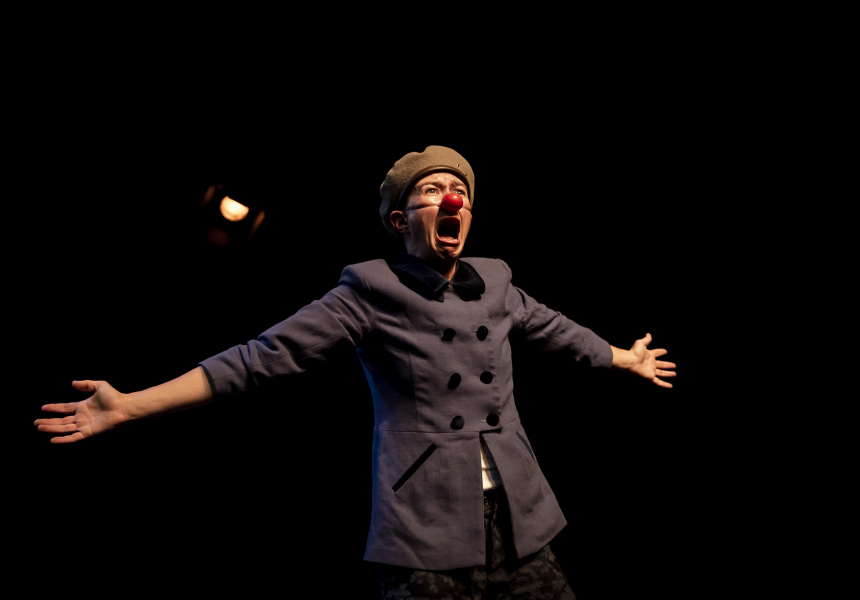There’s only so much “hard positivity, and wine, and sarcasm” can do, says performer Lily Fish.
The Melbourne artist is one of hundreds of creators who was left bereft and broke(r) when Melbourne Fringe’s IRL program inevitably fell victim to lockdown 6.0.
Fish thinks artists and performers need to grieve, so she’s conceived a project to offer the service.
We think you might like Access. For $12 a month, join our membership program to stay in the know.
SIGN UPDeath Knell, Fish’s ceremonies for “deceased Melbourne Fringe shows”, offer artists the “time, space and breath” to give these pandemic victims a fitting farewell; offering palliative counselling, bespoke death certificates and even public cremations (restrictions permitting) to the bereaved.
Last week, Melbourne Fringe was forced to axe more than 300 shows – and downcast artists were emailed a reminder about their community’s “resilience” – but after 18 months of crushing cancellations, Fish says the mood in Melbourne’s performing arts sector is “tired, sad and a bit hopeless”.
“I just thought, man, there needs to be some kind of ‘end of life’ care provided here,” she says.
As the Covid cases rose in Melbourne during August, performers braced for the inevitable obliteration of Fringe’s live programme; and Fish considered the working artists’ dilemma. “We don’t often talk about the non-financial impacts of cancellations … because it’s harder to quantify.”
Fish knows as well as the next artist that a life of professional creativity must be at peace with some degree of material austerity. But for working artists, forgoing a project’s fruition cuts deep.
She hopes Death Knell’s services can soothe this lament, offering Fringe artists the opportunity and space to “speak lovingly” about their dearly departed.
Tandi Palmer Williams, managing director at Patternmakers, a creative research agency in Sydney’s Darlinghurst, has been studying the impacts of Covid on the arts.
“The pandemic has touched all of us but the performance sector has been particularly badly affected, and for independent artists it can be devastating financially and emotionally,” she says.
It isn’t all bad news, though. One of Patternmakers’s recent reports tells us that while audiences have been disappointed and frustrated by cancellations, they mostly “express sympathy for the artists affected and many remain committed to supporting artists and cultural venues as much as they can”.
Seventy-three per cent of Victorian audiences say they expect their spending on arts and culture events will recover to pre-pandemic levels in the next 12 months and many, Palmer Williams says, want to make up for lost time.
Between now and then, though, Fish says there is a “grief for this season that has been lost”. She hopes to help lay to rest as many Fringe shows as demand requires – but stresses that Death Knell is by no means a mass grave. The services will be highly personal and she hopes that the ceremonies can be exhibited at some point (“not online!”).
If you’ve lost a loved one to Fringe, Death Knell is now taking enquiries for its free services. Fish says she is working towards expanding the project beyond Fringe artists in the future.
Follow Death Knell via Instagram at @LilyFishTheatre, or contact [email protected] to discuss end-of-life options for your terminal performance work.

